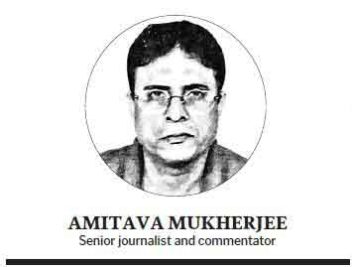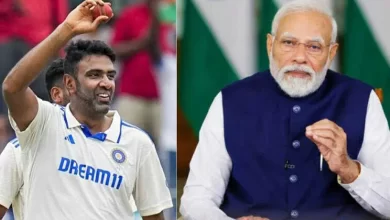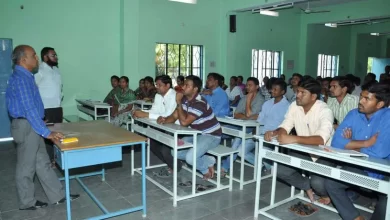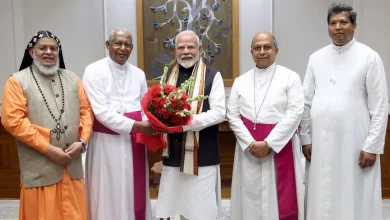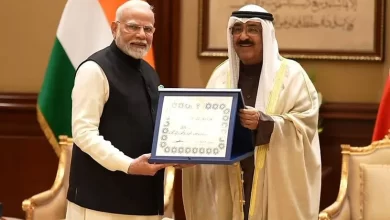Opinion: Watch out New Delhi

Though the media has busied itself with Prachanda, the focus should be on Oli, who may turn out to be India’s nemesis in Kathmandu.
By Amitava Mukherjee
Hyderabad: It is not Prachanda, the Prime Minister of Nepal, but Khadga Prasad Sharma Oli, the Chairman of the Communist Party of Nepal (Unified Marxist-Leninist), who may turn out to be India’s nemesis in Kathmandu. Although the media in India has busied itself with the future moves of Prachanda, the focus should be on Oli, an avowed anti-India political figure in Nepal who is now the kingmaker in his country.
As Nepal’s strategic value to India is immense, with both New Delhi and Beijing involved in a tug-of-war for establishing respective supremacies there, Oli is certainly the deciding factor for both Asian giants.
South Block’s Mistake
In the latest chessboard game, Oli has comprehensively defeated the amateurs in New Delhi’s South Block. The Government of India was certain that Sher Bahadur Deuba, the Nepali Congress leader, was going to form the government as his party had come out to be the largest block in the election result with 89 seats. Deuba had also assured New Delhi about it. But South Block had committed a terrible mistake. The polity in Nepal has turned towards the Left after the abolition of the monarchical system and both the CPI(UML) of Oli and the CPI(Maoist Centre) are now forces to reckon with. At a time when the need of the hour was to cultivate all the political stakeholders in Kathmandu, New Delhi put all its eggs in the Nepali Congress basket.
But Oli was not anti-Indian all the time. He was active behind the signing of the Mahakali river water sharing agreement between Nepal and India even though a section of the Nepali elite had castigated it as a sell-out to India. But in the 2017 election, he unleashed a vitriolic anti-India campaign. The bitterness stems from a belief that India had acted from behind the scenes in destabilising a government that he was leading in 2016. But more than that, Oli has a distrust for the Indian ruling elite which also comes from his social and political background.
Moving Away
Oli comes from a middle-class background. His baptization in politics in the 1960s coincides with the rise of the Naxalite movement in India and there are sufficient grounds to believe that he was influenced by it. He actively participated in the Jhapa, situated in eastern Nepal, rebellion where poor peasants had risen in revolts against landlords. He was arrested time and again for his political belief and spent 14 years in jail. His distance with India is quite natural as the Naxalite movement in India gradually fizzled out and almost no relationship grew between him and the Indian Left comprising the CPI and the CPM.
Let us examine how the Oli-Prachanda combination, where the latter will be a less important player, can spell harried moments for New Delhi. Soon after his oath-taking as Prime Minister, Prachanda inaugurated the China-financed Pokhara international airport. More important, a Chinese technical team arrived in Kathmandu soon after the installation of the new government to complete the survey work of the Tibet-Nepal railway network which would ultimately reach Lumbini, situated near the Nepal-India border.
With this development, the Indian external affairs department has gone into a tizzy. Grapevine has it that word has been sent to the Indian diplomatic establishment in Kathmandu to send daily updates on situations in Nepal. But it is late wisdom. India should have tried to effect a working relationship between Oli and the Nepali Congress much earlier. After all, Nepali politicians are very ‘pragmatic’ and a patch-up between the two could have been possible had New Delhi been sagacious enough to curb the ambition of Sher Bahadur Deuba.
Oli’s Predilection
The question now uppermost in concerned circles is why India’s External Affairs Ministry led by S Jaishankar allowed itself to be outsmarted by Oli. Were not the Indian mandarins aware of Oli’s political predilections or his background? Background materials were ready at hand. When did China provoke tensions in the Ladakh sector? When the communist giant was cornered internationally on the question of the source of the coronavirus, it tried to deflect public gaze, internally and externally, from the corona issue by creating a war-like situation.
Oli, who was then the Prime Minister of Nepal, acted as a proxy of China at this juncture. He suddenly declared his government’s decision to release a new political map of his country which would show Kalapani, Lipulekh and Limpiyadhura, the three areas under Indian possession, to be parts of Nepal.
Oli had given another uncomfortable moment to New Delhi. When the Narendra Modi-led central government had bifurcated Jammu & Kashmir into two centrally administered areas, Oli accused India of violating international borders although the Government of India’s actions had nothing to do with Indo-Nepal borders.
Beijing Makes Inroads
While the media in India seems to be engrossed with China-Nepal railway projects, Beijing has quietly left its mark on other infrastructural projects in Nepal over the years which have gone largely unnoticed. China was involved in the modernisation of the Araniko highway which connects Kathmandu with the Chinese border near Kodari. More important, Beijing invested more than $20 million in upgrading the 17-km-long dirt track between Syabrubesi in Nepal and Kyirong in Tibet. On the Tibetan side, China has constructed highway number 318 which leads first to Lhasa and then to Shanghai. The Syabrubesi-Kyirong road is directly connected to this Chinese highway.
In such a situation, Indo-Nepal relations are now in a tricky stage. Oli may not be the Prime Minister of Nepal but Prachanda, the actual Prime Minister, has very little elbow room to manoeuvre with only 32 parliamentary seats for his CPI(Maoist Centre). Moreover, Prachanda’s own political convictions are also too well known. He will use the India card for furthering his own goals but his heart lies in Beijing. For New Delhi, good relations only with the Nepali Congress will no more serve purposes. Both the CPI(UML) and the CPI(Maoist Centre) will have to be taken into confidence. But are the functionaries in South Block equal to the task?
